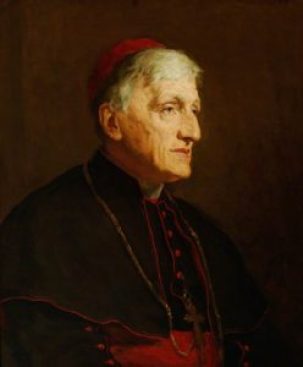Recently I have been working on putting together a portfolio all theology majors need to arrange in order to graduate from Loyola University Chicago. Part of the process is to look through the best of my papers and post a few of them demonstrating I have attained the different knowledge areas. In addition, I had to write a reflection on my theology major, what I have gained from it, and what I seek to do with it in the future. As I look through these papers I am reminded of all the knowledge I attained and how my mind has grown in studying something so dear to me.
So why did I decide to take a major with one of the worst returns on investment? First, I should say that I am a political science major and intended to go to law school when I made the decision. So I did have a certain pragmatic path which I was following, to which theology was a supplement. More importantly, throughout my life, and especially my years in high school, I have often enjoyed discussing and debating my own Catholic theology with close Orthodox and Calvinist friends. It was here my interest in theology began, and upon entering Loyola I knew I wanted to take on a theology or philosophy major to accompany my major in political science. After some amazing experiences with theology professors, and less amazing ones with philosophy professors, I decided to major in theology. Now, about three years after that decision, I have put together some of the reasons I care so deeply about theology.
#1 Humility: Theology forces you to see yourself in the context of human history.
Do you ever look back on ancient Rome, the middle ages, or even the 1930’s and think about how far we have come as a society? Do you ever look back on ancient thinkers with a lack of seriousness, not taking their arguments to heart but seeing them as part of a period we have moved past? Every generation in human history often believes their generation is the greatest in every capacity, and while we have progressed technologically, our moral progression is more suspect. It is easy to look on our accomplishments today, the decline of slavery, racism, and increase in economic mobility, and conclude things are the best they ever have been morally. Yet more often than not we focus on the problems being fixed, not the new ones being created. We forget that anxiety is increasing in developed countries, along with depression and isolation of many individuals. Most importantly we turn a blind eye to the over sixty million people (in the US alone) who were never given a chance at life because of abortion. Are we truly the most morally upstanding generation? Or did we just fix old problems and create new ones?
Furthermore, it is easy to look back on philosophers and theologians, like Aquinas and Augustine, and discount their thoughts based on how far removed they are from us. In a class on theology from the Reformation to the Modern period we look over on how the paradigm of our understanding of the world has changed. Many will dismiss the medieval understanding of health once we know about the progression of science. The visions of St. Teresa of Avila were simply the product of epilepsy and have no divine reflection to offer us. We assume if the great thinkers were transported to 2018 they would agree with our conclusions once shown the evidence.
However, while it is undeniable that science has progressed, we see the world through a different lens than many in the middle ages. The notion that the natural world diagnosis (epilepsy) somehow discredits the supernatural diagnosis (visions of God) would not make any sense within the medieval framework. The divine order and the natural order were one and the same. The study of nature was a study that point us to God and was seen as a holy endeavor. Yet with the rise of Francis Bacon and his notion that nature should be tortured rather than studied, our understanding of nature has led to a fundamental shift. There is no way to measure whether our hermeneutic for the divine and natural orders is any more correct than those of St. Teresa, yet we judge St. Teresa based off our own fundamentally different view of the world. Theology requires the humility to attempt to step out of our own time and understand the works of the theologians on their own terms.
#2 Critical Thinking: Theology makes you contend with radically different world views.
A somewhat natural continuation of the first point, when we read theology and truly attempt to understand (albeit imperfectly) the thoughts of the author on their own terms. We come across a great variety of ways of thinking, understanding, and processing existence. One discovers in short order that there are many assumptions each period (and person!) makes that shape their outlook on the world. This does not exclude us and the possible assumptions we make that we are not even aware of! In learning about these different insights offered across centuries, theology aids in deciding what root of assumptions we take and how that impacts us going forward.

Ideas of illness is a good example of how theology opens up doors to different ways of understanding the same phenomenon. In our medically advance society we understand illness as a variety of different bacteria, viruses, and biologically induced ailments that cause us to weaken and take on a number of symptoms. Yet throughout human history illness was connected to the divine. Battling it involved a spiritual warfare, obvious in the Gospel of Luke but the other Gospels as well. As easy as it might be for us to dismiss such thoughts as ‘primitive,’ theology seeks to understand these ideas nevertheless. Perhaps it is the result of a primitive people who could not explain illness. Alternatively maybe God does work in sickness and all we have done is better understand how God works in the body. These questions that rise out of a sincere engagement with texts push us to see how an ancient may understand the world we live in today.
#3 Idealism: Theology helps us reach towards first principles and fulfillment.
In addition to being a theology major I am also a major in political science. The two majors seem to draw an almost natural contrast with one another. In many classes on each side we will talk about the horrors of the world and the evils, but the way theology and politics approach such topics could not be more different. The political world generally seeks to mitigate harm rather than uphold dignity. The UN was formed to provide a forum that could help stop wars on the scale of WWII from happening, and on that scale it has proved reasonably successful. Humanitarian injustices, however, have always been a great failure in the UN with no universal agreement on rights and a Human Rights Council with some of the worst human rights abusers as members. To expect politics to provide the world with a moral compass is naïve, and it is a good thing that politics is negative. When groups begin to push for a politics that does not mitigate violence but imposes a value system on others, communism, fascism, and other forms of authoritarian governance have an opening to take root.
While for politics it is a good thing to not get involved in the higher aspects of life, theology demands such a search. While politics seeks the ‘ok,’ theology seeks the ‘ideal.’ The most famous theologians all have arguments, treatises, reflections, and other forms of writing to express what this ideal may look like. Theology seeks to understand the nature of humanity and our relation to God and the relation of God to all of creation. By understanding the divine we learn about why we were created and what purposes follow from it. Theology allows us to deal with essential questions in an academic and deeply meaningful way.
#4 Seeking: The ultimate goal of Theology is to seek God.
The most important variable in my decision to study theology was my relationship with Christ and how I saw theology as a way in which I could grow in that relationship. Just as prayer is a conversation with God, theology is a growth in understanding him.
“Henceforth I call you not servants; for the servant knoweth not what his lord doeth: but I have called you friends; for all things that I have heard of my Father I have made known unto you.” John 15:15
In this knowledge, theology is that process of listening to and seeking to understand how God acts in our lives and in the world. This task is unending, impossible to complete for us. Imagine the difficulty of truly knowing just yourself, and apply it to a being infinite. Yet in the Psalms, song of songs, proverbs and other texts, we have many who attempt to understand our Creator. To study and know God is not to challenge him, but to love him as a friend, as we would any of our own.
In reading Aquinas, Augustine, Newman, etc. one finds similar issues arise in all authors. They all seek to find the nature of good, seeking the good in the nature of God, and how it can be sought in a fallen world. The purpose of life, what real justice looks like, and the definition of evil are all important questions we all wrestle with at some point in our lives. Understanding why we exist, the sacrifice of Christ for us, and how we can truly love God and others in the most fulfilling manner are questions to be pondered, debated, and defined in theology.

Does this mean theology is necessary for relationship with God? No; there are many people who have become a lot closer to God than I am. However, theology can be a way to grow in relationship with God. Studying these great minds has been an exciting process at Loyola, and I will miss it. Yet I hope to continue to read and come to know God, continuing this path theology has begun for me.


Leave a Reply